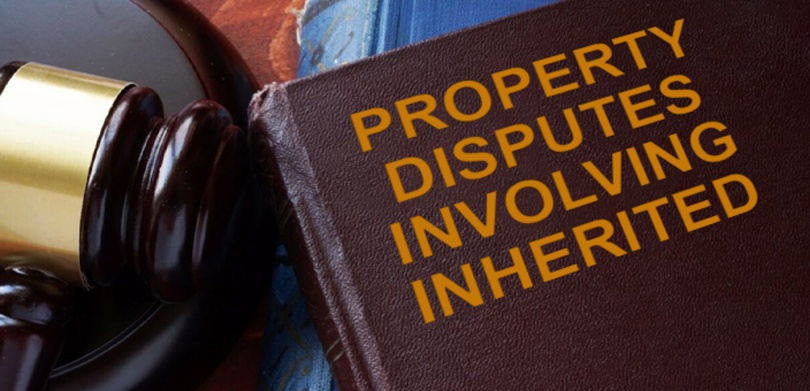Page Contents
- 5 Most Common Property-Related Disputes And Ways to Prevent These Disputes
- Property Disputes Involving Inherited or Willed Properties
- Property Disputes Amongst Developers/Builders and Buyers
- Property Disputes Involving the Failure to Provide an Occupancy Certificate
- Disputes on Misusing Leased or Rented Property
- Can a Family Settlement Deed be Challenged?
- Can Someone Sell a Property if Your Name is on the Deed?
- FAQs
5 Most Common Property-Related Disputes And Ways to Prevent These Disputes
When property-related disputes come into families or between two parties, the property transfer acts govern these disputes.
The Property Transfer Act is the regulation that controls property disputes in India. This Act establishes the legal framework for evaluating and settling issues and regulates property transfer in India.
Let us see what kinds of property disputes happen in India and how these disputes can be prevented.
Property Disputes Involving Inherited or Willed Properties
 Property disputes related to inherited or willed properties are the most common dispute in our country. These types of property disputes may result when someone receives property via a will and another person challenges the will’s validity.
Property disputes related to inherited or willed properties are the most common dispute in our country. These types of property disputes may result when someone receives property via a will and another person challenges the will’s validity.
Additionally, intestate deaths give rise to disputes (Death without a will).
These disputes with willed properties can be prevented by creating a will including all necessary measures and using all recognised legal procedures.
The laws of inheritance or succession are applicable in the event of an intestate death. In particular, when purchasing inherited or bequeathed property, ensure sure the sellers are the legal owners of the property.
Property Disputes Amongst Developers/Builders and Buyers
 An agreement between both the buyers and the developer or builder governs every real estate transaction. The builder has, however, frequently failed to uphold their end of the bargain, abandoning purchasers in a delicate situation.
An agreement between both the buyers and the developer or builder governs every real estate transaction. The builder has, however, frequently failed to uphold their end of the bargain, abandoning purchasers in a delicate situation.
Purchase wisely from reputable builders to avoid situations like this.
There is also RERA if you are concerned about the builder’s reputation. Never invest in real estate that has not been listed and approved by RERA.
Property Disputes Involving the Failure to Provide an Occupancy Certificate
 Whenever you purchase a real estate property Ensure that the property you hold is subject to a legitimate title or occupancy certificate.
Whenever you purchase a real estate property Ensure that the property you hold is subject to a legitimate title or occupancy certificate.
Due to the lack of a digitalized land registry in our nation, title fraud involving real estate property is relatively standard. When you purchase an independent property, title scams are more prevalent.
Verifying all property-related papers and, if necessary, hiring legal counsel will help you avoid title fraud.
You can also purchase liability insurance, which can offer protection against real estate fraud.
Disputes on Misusing Leased or Rented Property
 In India, disputes over leased or rented property are commonplace. Owner and occupant disputes as well as tenant disputes with the neighbourhood welfare association are possible.
In India, disputes over leased or rented property are commonplace. Owner and occupant disputes as well as tenant disputes with the neighbourhood welfare association are possible.
Drafting a rental contract with specific guidelines and expectations for the maintenance and upkeep of the rented or leased property would help to avoid disputes of this sort.
Can a Family Settlement Deed be Challenged?
Even though a properly drafted agreement family settlement cannot be changed without a court order, it can be contested in court in the following situations.
Future disputes may also result from any distortion of the factors determining the ownership of the contested property, or incorrect execution.
A failsafe, amiable, and legally binding family settlement will be achieved by paying attention to these prevalent tripwires while you draft an agreement, which is in everyone’s best interests.
Can Someone Sell a Property if Your Name is on the Deed?
The builder or any person cannot sell any real estate that is recorded in your name without a power of attorney that should be authorized in his name and allow him to act in the same manner.
FAQs
| Can one brother sell the property without my consent?
No, inherited properties cannot be transferred without the successors’ approval in cases of major and minor; in the latter situation, a judicial order may be required. Whether property that was improperly disposed of can be retrieved. |
| Can a power of attorney holder sell a property?
According to a ruling by the Supreme Court, a person who has been awarded power of attorney above an estate cannot transfer the property in the absence of a particular clause granting him the authority. |
| Can I sell my parent’s house without power of attorney?
Before being utilised, the LPA should be documented with the Public Guardian’s Office. The parent’s home cannot be sold without first appointing a deputy if she does not possess a legal LPA or Enduring Attorney’s Power of Attorney (EPA). |
| Can a power of attorney change a will?
Having a will in order is usually recommended, particularly when establishing a power of attorney. Only if you are not “of sound mind” and are unable to make the changes yourself can your attorney make changes to an existing will. As always, it is in your best interest to make these modifications. |








